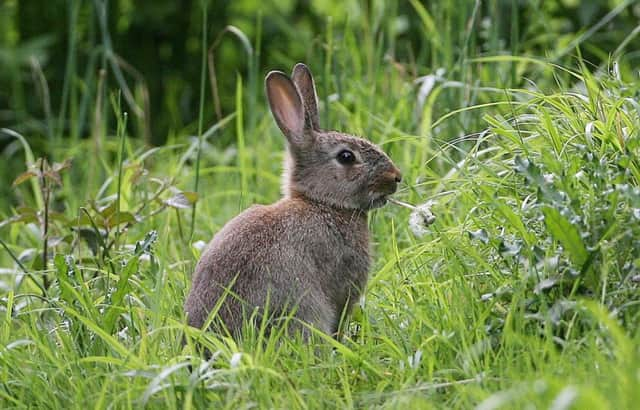Management and control of brown hares


Management of wildlife is often a contentious issue in which stakeholders are increasingly influential. The European hare (Lepus europaeus) is a non-native invasive species, now established in Northern Ireland.
The European hare impacts the endemic Irish hare (L. timidus hibernicus), a priority species of conservation concern, via competition and hybridisation to the extent that control of European hares is a priority. The researchers conducted a questionnaire survey among members of Countryside Alliance Ireland, who promote rural interests, including field sports—and non-members, to ascertain the contrasting attitudes to the lethal control of European hares in Northern Ireland; a total of 342 (20%) questionnaires were returned.
Advertisement
Hide AdAdvertisement
Hide AdThe researchers hypothesised that: (i) CAI members would exhibit greater support for intervention than non-members; and (ii) respondents in the core invasive range would differ in their outlook when compared to respondents from other zones. CAI members were more likely to be aware of the presence of the non-native species and to support lethal management.
Both groups considered the threat posed to biodiversity by the European hare to be important. It was concluded that members of rural interest groups may be important advocates of intervention, whilst non-members of field sports organisations may be more reluctant to support any proposed management plan involving lethal control. Active engagement to develop a mutual understanding, prior to developing management options, is crucial in ensuring long-term success.
CAI fully supported the research and we will continue to work closely with Quercus to ensure a thriving future for the Irish Hare.
Avian Influenza Trade Restrictions Lifted
The trade restrictions introduced on 19 December 2016 following the outbreak of Highly Pathogenic Avian Influenza (HPAI) H5N8 in Louth, East Lindsey, Lincolnshire, and maintained as a result of subsequent outbreaks of H5N8 HPAI in Great Britain, were lifted as of midnight on 12 September 2017.
Advertisement
Hide AdAdvertisement
Hide AdThe correspondence issued during December 2016 and January 2017 detailed the restrictions put in place due to the outbreaks of HPAI H5N8 in Great Britain. As a result of the restrictions being lifted the following General Licenses have been reinstated from midnight on 12 September 2017:
DAERA/GEN/17/01 - Poultry and hatching eggs from Great Britain
DAERA/GEN/17/02 - Racing pigeons from Great Britain
DAERA/GEN/17/03 - Ornamental fowl and Captive birds (other than poultry covered by EC Directive 2009/158/EEC) from Great Britain
DAERA/GEN/17/04 - Poultry products from Great Britain
Therefore importers of all live poultry, ornamental fowl, captive birds and racing pigeons no longer need to apply to DAERA to obtain a specific import licence before they can import any of these consignments into Northern Ireland from Great Britain.
Advertisement
Hide AdAdvertisement
Hide AdFurther information regarding the trade in live birds and hatching eggs can be obtained from Veterinary Service Animal Health Group Trade Section: (028) 9052 0865 or email: [email protected].